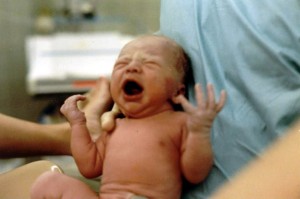China may consider lifting its one-child policy, but that does not mean it will terminate its practice of coercive population control, an American advocate for women’s rights says.
A two-child policy to start in 2015 was proposed at the annual meeting of the Chinese People’s Political Consultative Conference and the National People’s Congress the week of March 6-12, according to The Lancet, a British medical journal. If enacted, the change would discard the current one-child policy in cities. A two-child policy already is in place in rural areas and among minorities, if the first is a girl.

Communist Chinese officials often have brutally enforced the one-child policy since it was implemented in 1979. Government actions against those found in violation have included forced abortions on women in the eighth and ninth months of pregnancy and compulsory sterilizations. Penalties also have included fines, arrests and the destruction of homes.
The program — which requires all women to have a birth permit before becoming pregnant and monitors the reproductive cycles of women of child-bearing age — also has resulted in the infanticide and abandonment of female babies, according to reports.
Reggie Littlejohn says a switch to an urban, two-child policy will not soften China’s population control program.
“The problem with the One Child Policy is not the number of children allowed,” Littlejohn said in a written statement to Baptist Press. “Rather, it is the fact that the policy is enforced through forced abortion, forced sterilization and infanticide. Even if some couples will eventually be allowed to have two children, the Chinese Communist Party has emphatically not stated that they will cease their appalling methods of enforcement.”
Littlejohn is president of Women’s Rights Without Frontiers, a coalition that combats coercive abortion and sexual slavery in China.
Evidence from the regions already with a two-child policy shows the higher limit has done little to prevent the widespread aborting of girls in a country with a heavy preference for boys. The “areas in which two children are allowed are especially vulnerable to ‘gendercide,’ the sex-selective abortion of females,” Littlejohn said.
A study of the data from nine provinces in the 2005 Chinese national census showed 160 boys are born for every 100 girls, she said. A 2009 British medical journal analysis of the information concluded, she said, “Sex-selective abortion accounts for almost all the excess males.”
The resulting gender imbalance will result in an estimated 30 to 40 million more marriage-age men than women by 2020, according to the Chinese Academy of Social Sciences. “This gender imbalance is a powerful, driving force behind trafficking in women and sexual slavery, not only in China, but in neighboring nations as well,” Littlejohn said.
The enforcement of China’s population control policy “causes more violence toward women and girls than any other official policy on earth, and any other official policy in the history of the world,” Littlejohn said.
Wang Yuqing, deputy director of China’s Committee of Population, Resources and Environment, spoke in favor of gradually expanding the two-child policy, according to the People’s Daily, the official newspaper of the Chinese Communist Party. He cited China’s aging population as a reason for the change.
Critics of China’s policy point to another statistic as an additional example of the fallout from forced population control: There are about 500 suicides a day by Chinese women, according to the World Health Organization, making China the only country in the world with a higher female suicide rate than that of males.
American opponents of China’s one-child policy have urged the Obama administration and the United Nations to end their apparent indifference on the issue. They have called for President Obama to reverse his policy of funding the United Nations Population Fund (UNFPA), which has been found to support China’s program. Obama reinstituted support for UNFPA, providing more than $100 million to the agency the last two years. –Tom Strode, Washington bureau chief for Baptist Press.




Comments are closed.